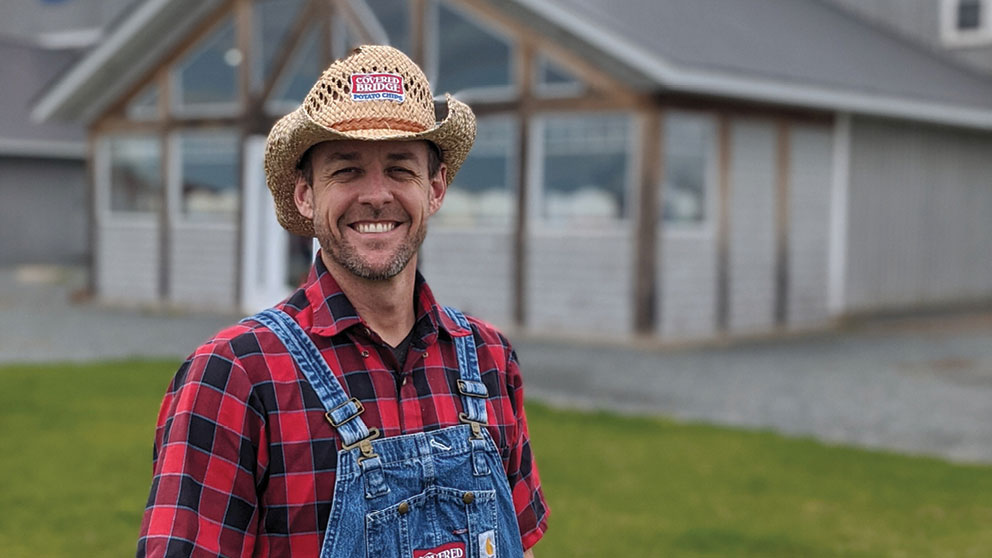How to build a strong farm advisory team

A strong and diverse team of advisors can go a long way to ensuring annual profit margins and growth for a farm operation.
From veterinarians, agronomists, lenders, lawyers and accountants to equipment technicians, real estate agents, insurance brokers and more, they all play integral roles in helping you make and execute essential decisions.
Whether you’re building your team from scratch or formalizing your current team into a more cohesive unit, consider these four points when building a successful team.
1. You’re the star
This is your operation, so it’s paramount to know what you and the management team – whether that’s your spouse, siblings, parents, or business partner – want.
Patti Durand is an Agriculture transition specialist based in Humboldt, Sask. says farmers need to recognize they’re the stars of their operation and structure relationships as such. If you’re the owner/operator, you’re not a spectator.
To truly shine, Durand recommends these steps:
Know your operation goals to properly build on the farm’s foundation.
If there are multiple farm owners, all parties should have a defined role with responsibilities. This creates clarity in determining who oversees the maintenance of the relationship with each advisor.
Know your farm business strengths. Understanding what you’re good at helps you find the right advisors to do what they’re good at.
"Taking time for a hard look at what is being done well and what needs improvement can be a very productive step,” Durand says.
2. Family first
Many operations are family-run, which can come with challenges, such as keeping family and business separate. While this may seem straightforward on paper, it can be tricky.
Shawn Deyell, a tax partner at RLB Chartered Professional Accountants in Guelph, Ont., says it’s important for farm advisors to realize how integral the family is to the growth of the farm business. Mixing family and farm business is intense in many scenarios, making communication paramount.
“There’s just a lot of integration that creates a lot of great opportunities, as well as many potential pitfalls,” Deyell says.
Regular conversations are important on issues like transition planning and the roles of operators within the farm. And when it comes to helping families set goals for their farm, an advisor’s responsibility may be part facilitator in addition to their main role.
3. Build strong relationships
A long-lasting relationship with an advisor starts with a very important first step – the initial conversation.
Durand points out that the first sit down with an advisor is the most important meeting. It’s the time set expectations about how you use their advice, how to prioritize advice in your operation and determine turn-around times for any reports or statements they prepare. Trust is built by setting expectations.
Relationships are about open and strong two-way communication. This means the farmer must provide accurate information on time, while the advisor must also make themselves available and endeavour to understand your goals.
The farmer must also commit to sharing farm information with the advisor as needed.
“Whether it’s getting financial information to the accountant or bookkeeper or providing what was sprayed on what field and time to your agronomist,” Durand says.
The more information the farmer provides to the advisor, the better they understand the operation and can create a tailor-made solution that leads to profitability and growth potential.
4. Good relationships take time
Building your team does not happen overnight. The key is finding an advisor who’s the right fit for your operation and will work with the farm you’ve created.
Maggie Van Camp is a co-founder and director of strategic change at Loft32 and CEO of Redcrest Farms. She says asking questions is important to know if an advisor, such as an accountant, is the right fit.
Do they have a farming background? Do they know about and understand key issues in the ag sector? How many farm clients do they have?
When building your team of farm advisors, seek word of mouth recommendations to find who may work best with your farm.
Van Camp adds it’s always a good idea to pick someone because of their expertise - not because they’re nearby.
“It’s becoming more important for farms to have a quality accountant who knows Canadian agriculture,” Van Camp says.
Liz Robertson, former Executive Director of the Canadian Association of Farm Advisors, recommends getting references for all the advisors before they become part of your team.
“Word-of-mouth referrals are the litmus test - that’s how I find good advice,” echoes Elaine Froese, a farm family transition coach and farmer.
Where to find advisors
If you’re missing a key advisor from your team and are unsure where to look, visit the Canadian Association of Farm Advisors’ website or Bureau virtuel agricole et agroalimentaire [French only] and use the search function to identify the type of advisor you seek.
Overall, keep these points in mind when seeking an advisor for your farm:
Know your farm operation inside and out before bringing someone in to advise you
Get references and follow-up on them, from any advisors you’re considering working with
Build trust and a solid relationship with two-way communication with your advisors
Don’t be afraid to replace advisors if the relationship isn�’t working out

Ryan Albright has grown Covered Bridge Potato Chips into a national success with products in 4,500-plus retail outlets across Canada – in an industry dominated by billion-dollar brands.
